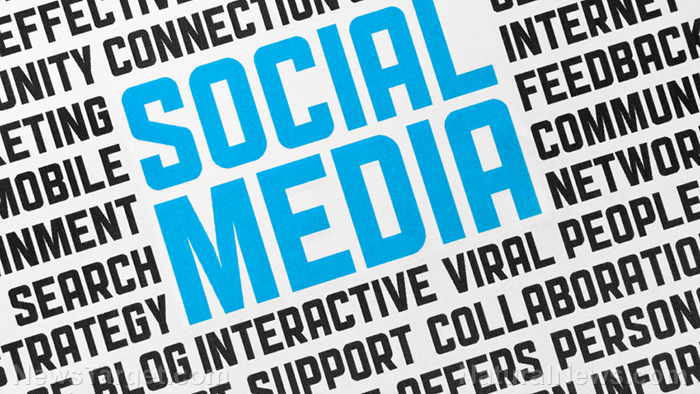More politically correct justification for bad behavior: Maybe cyberbullies are angry because they have ADHD
11/18/2017 / By JD Heyes

Some researchers are putting forth the notion that cyberbullies who troll certain websites and who use Twitter as an offensive weapon are actually suffering a psychological condition known as ADHD, in what sounds like yet another far-Left attempt to justify hate and bad behavior.
As reported by the U.K.’s Daily Mail, new research allegedly suggests that persons suffering from the condition swear more, are angrier and use words like “hate” and “cry” much more often than non-sufferers. This was suggested after scientists analyzed Twitter posts and recorded their findings.
In addition, the scientists said that these people often post more frequently between the hours of midnight and 6 a.m., according to findings which were published in the Journal of Attention Disorders, the Daily Mail noted.
“On social media, where you can post your mental state freely, you get a lot of insight into what these people are going through, which might be rare in a clinical setting,” said study author Sharath Chandra Guntuku of the University of Pennsylvania.
“In brief thirty- or sixty-minute sessions with patients, clinicians might not get all manifestations of the condition, but on social media, you have the full spectrum,” Guntuku added.
While the study’s results didn’t specifically link ADHD with cyberbullying, its findings claim that sufferers may be more likely to troll other users online.
To come up with their results, researchers said they followed and analyzed about 1.3 million tweets that were posted by users who self-reported a diagnosis of ADHD. Researchers compared their tweets to users who did not have the disorder. (Related: Is it time to break up the social media giants by using anti-trust laws?)
As the Daily Mail noted further:
Although the study did not specifically mention online bullying, results reveal ADHD sufferers post more swear words on Twitter than non-patients.
They also more frequently use words such as ‘hate’, ‘cry’, disappointed’ and ‘sad’.
ADHD patients also often post tweets between midnight and 6am.
Researchers have hypothesized that quick responses that are possible via Twitter from other users could put ADHD patients in better moods.
The scientists involved in the study hope that eventually they or others can create condition-specific apps that can provide some insight into mental health disorders like ADHD, anxiety and depression so that patients can better learn and identify their own triggers.
But how valid are these findings? In the age of social media, there is so much purposeful trolling of certain accounts belonging to public figures, politicians, entertainment stars and others that it’s hard to measure what is and isn’t real. In fact, trolling is a ‘regular thing’ now and is meant to drive narratives and even create news cycles (yes, Twitter is now considered a legitimate “news source” by the “mainstream” media).
Other experts believe that the mainstream social media has itself created and perpetuated bad behavior [there are alternatives, by the way]. Because online communication is not face-to-face and can be made anonymously, they say that people now interact with each other in ways they would never have even a decade ago, before social media became as prominent as it is today.
This isn’t new. Back in April 2013, Relevant reported that a study found that 80 percent of people surveyed experienced an “increase in rudeness” on social media sites, while one-in-five reported reducing face-to-face contact with a friend over something posted online.
Also, according to the Wharton School at the University of Pennsylvania, some experts believe that social media is actually making the world less stable.
Still, others just believe that technology, in general, is making humans less sociable. As The Wall Street Journal reported in May 2015, though we use technology to maintain near-constant contact with social networks, some believe that “we spend so much time maintaining superficial connections online that we aren’t dedicating enough time or effort to cultivating deeper real-life relationships. Too much chatter, too little real conversation.”
Is an increase in cyberbullying really tied to ADHD — or are people just demonstrating worse behavior because they can do so from a distance, anonymously?
Sources include:
Tagged Under: adhd, Alt-Left, Anxiety, cyberbullying, science, Social media, Study


















